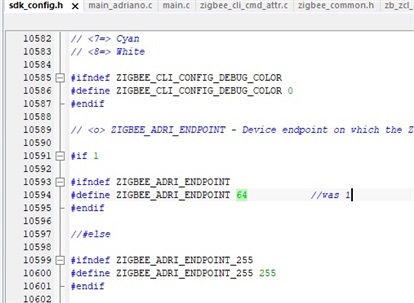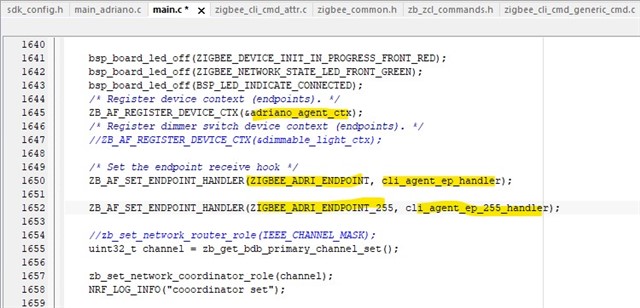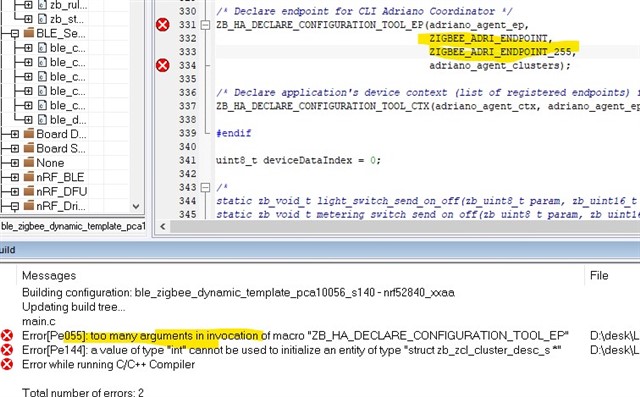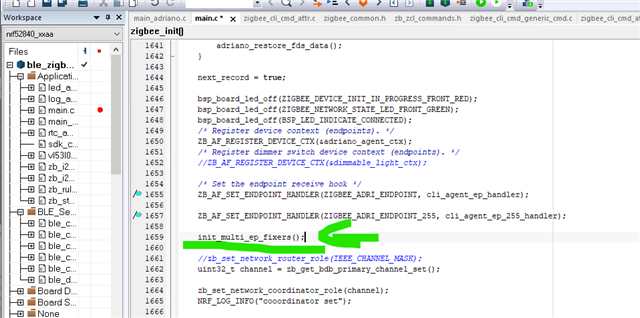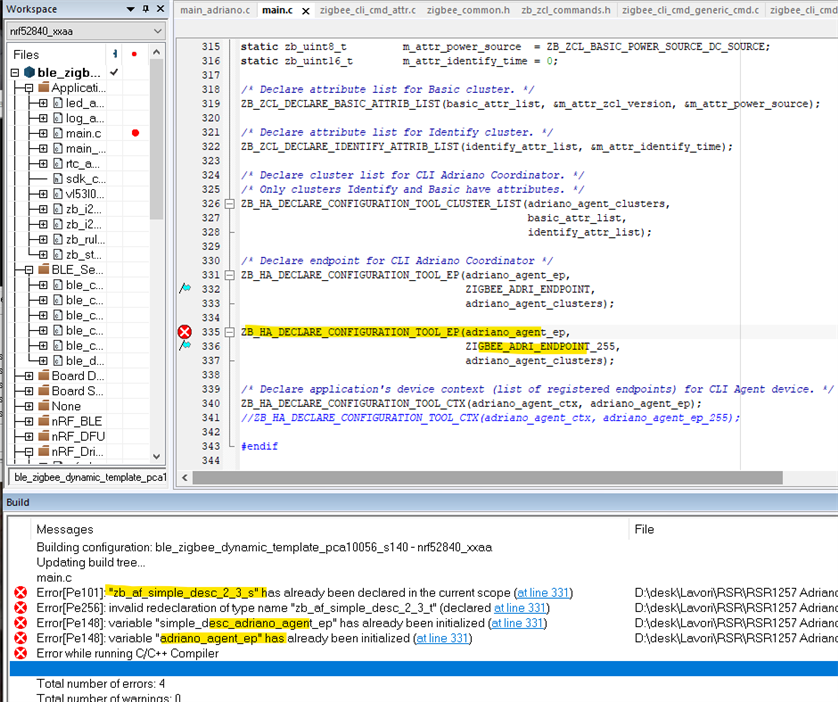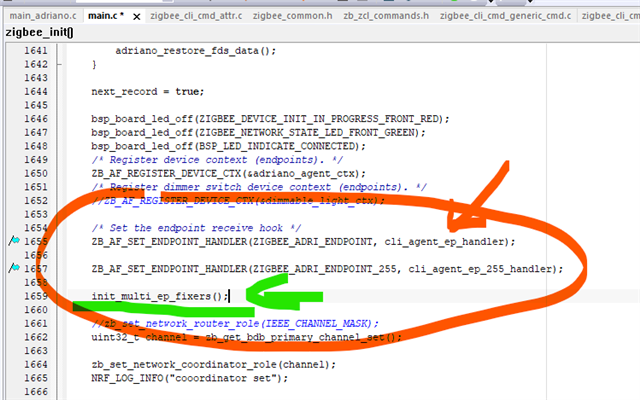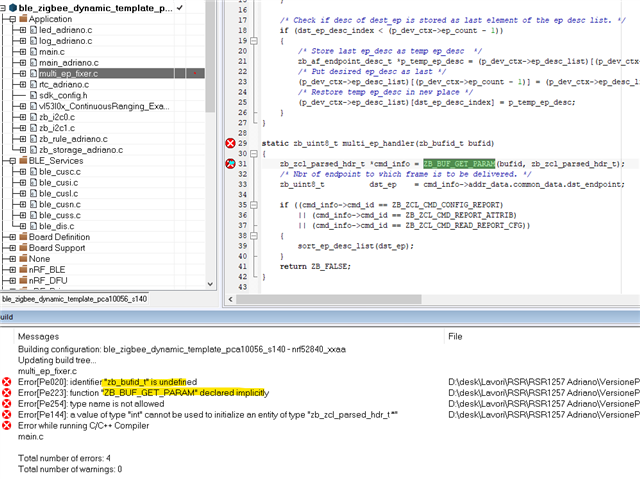Hello, I developed for my customer, a ZigBee coordinator in last 2019, using nRF5 SDK for Thread and Zigbee v3.2.0.
I has installed many sistems on field, equipped witn several battery powered sensors (door, motion, occupancy ...) and mains powered actuators (bulbs and smart plug).
I have only one endpoint # 64 configured on my coordinator, and now I need to add a second endpoint to receive the info from some end-node that sends to fixed endpoint #255
How can I add it?
Thanks for help
Abele

